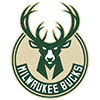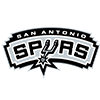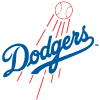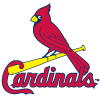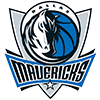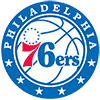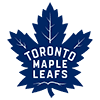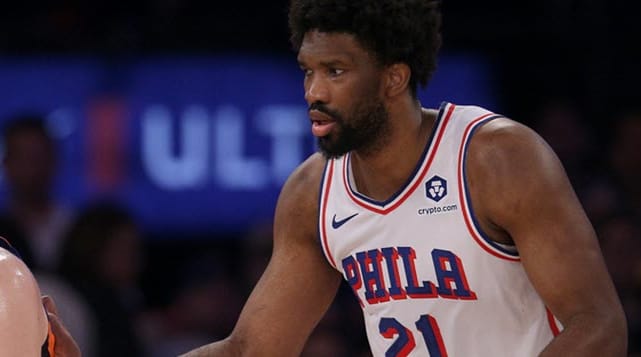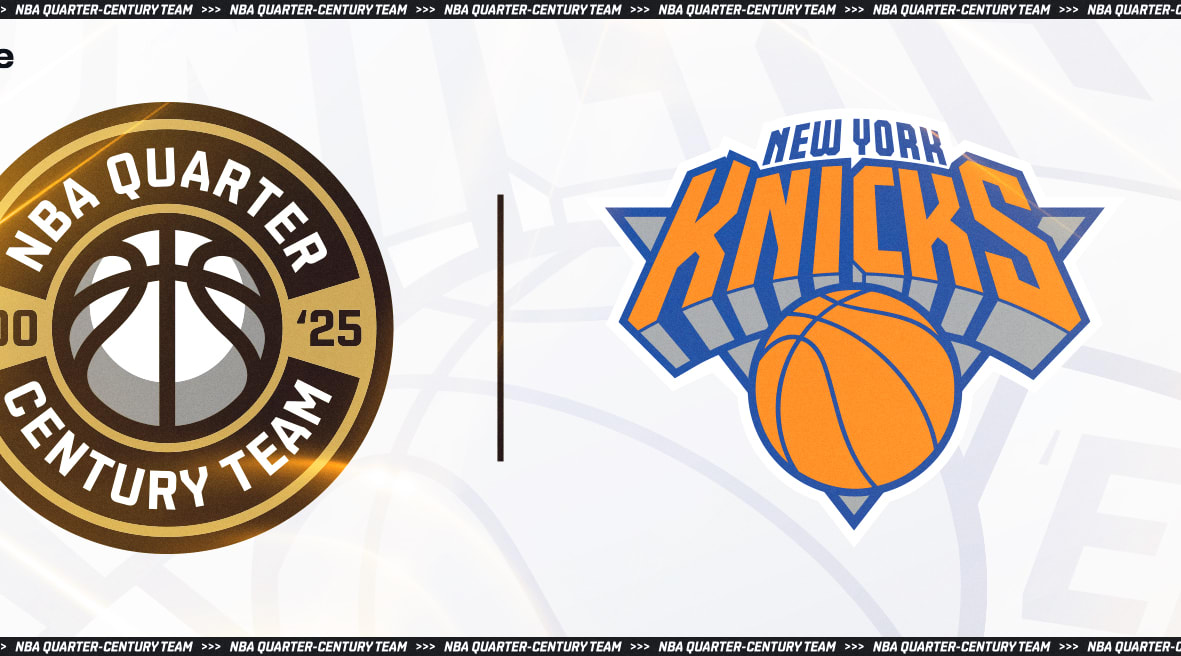Hello! Welcome back! What a week! The NBA set its all-time record with 63 players changing teams. Seven All-Stars were on the move, and 25 of the 30 teams were involved in a February deal. And, of course, The Trade!
Chaos like that obviously leads to a fair amount of upheaval on the waiver wire. And, of course, there are players whose rise has nothing to do with the turmoil engulfing the rest of the league.
A reminder that the All-Star break begins next week, and that has a massive impact on Fantasy schedules. However, since this is already one of the longest articles of the season without any schedule analysis, we've got to skip that part. Remember to check your league rules and plan ahead. RotoWire has a great schedule visual tool here.
As always, the players in this article must be rostered in less than two-thirds of CBS leagues. Players are listed in the order that I recommend adding them, assuming they are equally good fits for your team.
Adds for all leagues
Isaiah Collier, Jazz 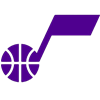 (58% rostered)
(58% rostered)
The trade deadline didn't help Collier, but it did demonstrate Utah's commitment to him. In their role as trade facilitator and second-round pick depository, the Jazz acquired multiple point guard-ish players (Josh Richardson, Jalen Hood-Schifino), and were given the option to acquire several more (Dennis Schroder, Davion Mitchell). They waived both of the ones they acquired, and passed on the opportunity to
Hello! Welcome back! What a week! The NBA set its all-time record with 63 players changing teams. Seven All-Stars were on the move, and 25 of the 30 teams were involved in a February deal. And, of course, The Trade!
Chaos like that obviously leads to a fair amount of upheaval on the waiver wire. And, of course, there are players whose rise has nothing to do with the turmoil engulfing the rest of the league.
A reminder that the All-Star break begins next week, and that has a massive impact on Fantasy schedules. However, since this is already one of the longest articles of the season without any schedule analysis, we've got to skip that part. Remember to check your league rules and plan ahead. RotoWire has a great schedule visual tool here.
As always, the players in this article must be rostered in less than two-thirds of CBS leagues. Players are listed in the order that I recommend adding them, assuming they are equally good fits for your team.
Adds for all leagues
Isaiah Collier, Jazz  (58% rostered)
(58% rostered)
The trade deadline didn't help Collier, but it did demonstrate Utah's commitment to him. In their role as trade facilitator and second-round pick depository, the Jazz acquired multiple point guard-ish players (Josh Richardson, Jalen Hood-Schifino), and were given the option to acquire several more (Dennis Schroder, Davion Mitchell). They waived both of the ones they acquired, and passed on the opportunity to take on the others. This, combined with their persistence in starting Collier even on the rare occasions when Keyonte George, Collin Sexton, and Jordan Clarkson are all available, underscores the key point: Collier is their point guard now. His scoring continues to improve, and he's an excellent source of assists. He needs to be added yesterday.
Matas Buzelis, Bulls 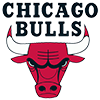 (34% rostered)
(34% rostered)
Zach LaVine was traded Sunday, and last played for the Bulls a few games before that. His absence creates a massive hole in Chicago, opening up 34.1 minutes and 16.9 FGA per game. LaVine also had a team-high usage rate of 26.8. It also signals a pivot – at long last, the Bulls are finally accepting an inevitable rebuild (why they didn't make additional trades towards that aim is characteristically perplexing and outside the scope of this column). That combination is a boon to Buzelis, an athletic 20-year-old rookie lottery pick. In the first five games without LaVine, he's already up to 14.8 points, 2.0 threes, and 1.8 blocks. Those numbers look even better if you focus on the last two games, in which he played 31 and 29 minutes. He also started Wednesday when Lonzo Ball (rest) missed the second night of a back-to-back, further evidence that Buzelis has shot up Chicago's depth chart.
Keon Johnson, Nets 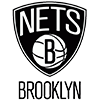 (36% rostered)
(36% rostered)
The most surprising move of the deadline was the Luka Doncic-Anthony Davis trade. The second-most surprising aspect of the deadline, I'd argue, was Brooklyn (and Portland) not making any trades at all. Oh well – it's unexpected, but it makes it easier to project for Fantasy. Johnson has been quietly rising for over a month now, and he's really shined over the last seven games. He's up to 19-5-3 with 2.1 threes and 1.4 steals while playing 30.9 minutes per game. And there's still upside for better here, as the Nets just bought out Ben Simmons (25.0 minutes per game, has played in 65% of Nets games), and veteran Cameron Johnson (32.1 minutes, 71% of games) seems likely to get shut down eventually. Johnson is approaching must-add territory, and might be there already.
Dalton Knecht, Hornets 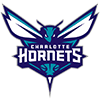 (48% rostered)
(48% rostered)
The Hornets gave up a promising young player in Mark Williams on Thursday, and Knecht was a key piece of the return package. He steps in to a depth chart already reeling from season-ending injuries to Brandon Miller and Tre Mann. Knecht has a good chance to start right away, or, barring that, earn a quick promotion. However, while the opportunity is excellent, Knecht's Fantasy profile is limited. He's a good scorer and three-point shooter, and he's big enough to snag some rebounds. His contributions to all other categories are barely detectable using traditional human technology. He's worth adding, but his limitations are why he's not a higher priority.
Jose Alvarado, Pelicans  (48% rostered)
(48% rostered)
The Brandon Ingram to Toronto trade doesn't really impact Alvarado, but last week's Dejounte Murray (Achilles) injury does. Murray's season is over. There are still a lot of backcourt options around, most notably CJ McCollum, but Murray's absence should lead to a lot more minutes for Alvarado. Though he struggled in the first post-Murray game and had to miss the second due to illness, Alvarado went off for 20-3-6 in 34 minutes the night that Murray got injured in the first quarter. He's likely to be inconsistent, but provide plenty of assists, steals, and threes.
Moussa Diabate, Hornets  (24% rostered)
(24% rostered)
The Hornets shipped out Mark Williams on Thursday, only a few weeks after getting rid of Nick Richards. They got Jusuf Nurkic in the return package, but he's as washed as the ducks in a Dawn ad. Diabate is allergic to scoring, but he should be an excellent source of rebounds and defense as Charlotte's primary center. In the games where he played at least 20 minutes (16 games, averaging 27.9 minutes per game), Diabate put up 6-11-2 with 1.3 steals and 1.2 blocks.
One important caveat with Diabate: he's currently on a two-way contract, which, due to CBA minutiae, means that he can only play nine more NBA games this season. After that, either Charlotte will either have to convert him to a full NBA contract or Diabate will spend the rest of the season in the G League. I haven't seen any reporting addressing this question yet. I'd wager they figure out a way to keep Diabate around, but managers should make this pickup understanding that he might expire after nine games.
Other recommendations: Ayo Dosunmu, Bulls (65% rostered); Andrew Nembhard, Pacers (52% rostered); Brandin Podziemski, Warriors (46% rostered); Dillon Brooks, Rockets (52% rostered); Toumani Camara, Trail Blazers (66% rostered); Precious Achiuwa, Knicks (17% rostered); Harrison Barnes, Spurs (39% rostered); Guerschon Yabusele, 76ers (58% rostered)
Avoid the temptation
Players likely to get added after the deadline, but who you should pass on
Max Christie, Mavericks 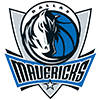 (26% rostered)
(26% rostered)
Christie has popped up on some other articles and podcasts as a trade deadline winner and pickup. I usually try not to directly criticize other analysts, but: absolutely not, this is madness, what are you thinking? Christie was a Lakers starter for 24 games, averaging 10-3-2 with 1.9 threes and 1.3 stocks. That's OK for a deep league, but that's nowhere near enough for a standard roster. It took him 30.6 minutes per game to compile that mediocre stat line. How, exactly, is he supposed to get higher than 30.6 minutes per game on a deeper Dallas lineup? The Mavericks' starters – who appear to be all on track to play by this weekend – seem locked in as Kyrie Irving, Klay Thompson, PJ Washington, Anthony Davis, and Daniel Gafford. Then Christie still has to compete with Naji Marshall, Spencer Dinwiddie, Caleb Martin, and Dante Exum for bench minutes. Even if he earns the sixth man role over all of them (far from guaranteed), sixth men don't play more than 30.6 minutes. Christie may maintain some deep league value, and he may get some short run on standard leagues if injuries occur. But he's straightforwardly a deadline loser. His roster rate should be dropping, not rising.
Kelly Olynyk, Pelicans  (7% rostered)
(7% rostered)
In one of the most predictable moves of the deadline, New Orleans acquired a center. Even after acquiring Olynyk, the Pelicans' center depth chart is one of the weakest in the league. That will likely lead to many managers targeting Olynyk on waivers this week – especially since, for whatever reason, he has long been a favorite of the Fantasy community. My advice: don't bother. Olynyk needs 24-plus minutes for deep league relevance, and 28-plus to make an impact in standard leagues. That would require taking time away from promising rookie Yves Missi, which I simply don't see happening.
Jordan Hawkins, Pelicans  (12% rostered)
(12% rostered)
Hawkins was a popular pre-deadline stash candidate, but the Pelicans' deadline moves didn't do enough to open minutes for the sophomore wing to have Fantasy value going forward. New Orleans shipped out Brandon Ingram, but he'd already been out since Thanksgiving, and Hawkins only played more than 25 minutes four times during that span. Even if the minutes magically materialized for Hawkins, he'd still only help in points and threes – but it looks like the minutes won't be there.
New Orleans also brought back Bruce Brown at the deadline. The veteran is on an expiring contract and may get bought out. However, if they keep him around, that further undermines Hawkins' value, as Brown is a solid player who deserves meaningful minutes.
Trade deadline losers
Players I'd previously recommended as adds whose value took a big hit due to deadline moves
Stephon Castle, Spurs 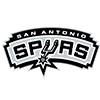 (67% rostered)
(67% rostered)
He had some great games before the Spurs acquired De'Aaron Fox, and he's an exciting long-term prospect. But San Antonio is officially a "win now" team, and Castle is now the third-best player at his natural position (point guard) on the roster. He should maintain some deep league value, but I doubt he'll do enough to stick on standard rosters.
Max Strus, Cavaliers 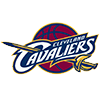 (26% rostered)
(26% rostered)
The Cavaliers acquired De'Andre Hunter from the Hawks on Thursday, and he is clearly their best option as a fifth starter alongside their four stars. The Fantasy case for Strus depended upon him reclaiming both the starting role and the large minutes load that he had last year – that is no longer possible without a Hunter injury. He's a deep league threes specialist only now, and most managers should drop and/or ignore him.
Brice Sensabaugh, Jazz  (9% rostered)
(9% rostered)
Utah was involved in a few trades this week, but only as a fringe facilitator, and they didn't end up moving any of their key veterans. Sensabaugh really shined when he was given extended run in January, but he's buried when most of the depth chart is active. Given how aggressively Utah started tanking over a month before the trade deadline, it's likely that one or more of Collin Sexton, Jordan Clarkson, Lauri Markkanen, and John Collins will see their seasons end prematurely due to seasonal tankitis or some other equally real injury. However, that's not guaranteed, and he's not playing enough to be rosterable until then.
Cody Martin, Suns 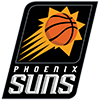 (formerly Hornets) (8% rostered)
(formerly Hornets) (8% rostered)
Caleb Martin, Mavericks  (formerly 76ers) (25% rostered)
(formerly 76ers) (25% rostered)
The Martin twins, both currently hurt, were great fits for points-punters or deep-leaguers before their injuries. But both were traded to rosters where they'll have a harder time getting regular minutes. They're unlikely to get enough time to impact Fantasy rosters once healthy, and the upside is no longer near enough to justify holding while they're out.
Deep league special
Tristan Vukcevic, Wizards 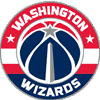 (1% rostered)
(1% rostered)
Richaun Holmes, Wizards  (1% rostered)
(1% rostered)
Washington traded away Jonas Valanciunas and Marvin Bagley and brought back some old wings and one of my least favorite centers of all time in Alex Len. Valanciunas was only averaging 20.0 minutes per game, and Bagley had been out, so the change isn't as big as it first appears, but they will need to give some minutes to large people who weren't previously getting them. Alex Sarr (84% rostered) is probably the biggest winner from these trades, but he's too widely rostered to qualify for this column. The more rational move here would be to give all of Valanciunas' minutes to Vukcevic, a relatively promising 21-year-old on a two-way contract, to see if he's worth making a longer-term investment in. But betting on the Wizards to make rational decisions is a good way to go broke. It was Holmes who got the start and played more minutes on Wednesday, the night of the trade. If either Holmes or Vukcevic takes over a 20-ish minute per game workload, their skill-sets are fantasy-friendly enough to be worth rostering in deep leagues.
Other recommendations: Nickeil Alexander-Walker, Timberwolves (11% rostered); Jaxson Hayes, Lakers (23% rostered); Karlo Matkovic, Pelicans (4% rostered); Quinten Post, Warriors (4% rostered); Kyshawn George, Wizards (13% rostered)









